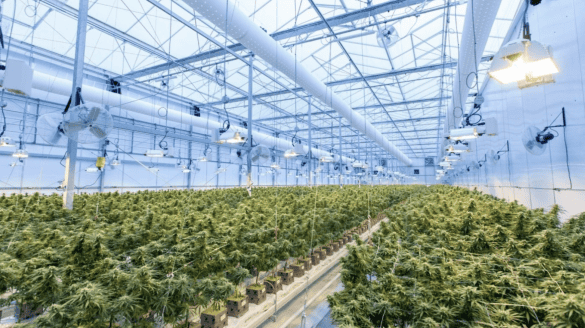Rwanda is pushing the boundaries of its economic transformation—this time, with medical cannabis. The country’s first high-security cultivation and processing facility, part of its High-Value Therapeutic Crop (HVTC) program, is now 83% complete, according to the Rwanda Development Board (RDB).
With Rwf2.2 billion budgeted for the 2024/2025 fiscal year and over Rwf1 billion already spent, the project’s financial execution currently stands at 46%. A final phase remains: installing a double-layered security fence designed to meet stringent international safety standards.
“The works are progressing steadily. What remains is mostly fencing, while the drainage layout is done but pending invoicing,” RDB Chief Financial Officer Joseph Cedrick Nsengiyumva told lawmakers on May 13 during a budget hearing.
This landmark project, located in the Musanze District, is central to Rwanda’s push into the global pharmaceutical and medical research sectors. Spearheading the initiative is King Kong Organics (KKOG), a subsidiary of KKOG Global, which received Rwanda’s first five-year cannabis production license. The firm has already invested around $10 million, covering everything from infrastructure and technology to land acquisition and genetically modified cannabis seeds.
Originally slated for completion by May 2024, the facility faced delays due to access infrastructure issues. Despite setbacks, production is on the horizon. KKOG aims to extract cannabis oils for export, targeting a yield of at least 5,000 kg per hectare. Cannabis plants typically mature in four to six months.
The Rwandan government has earmarked 134 hectares for cultivation, positioning the country as a future exporter of medicinal cannabis. The state has also pledged an additional $3 million in support to help launch production operations.

